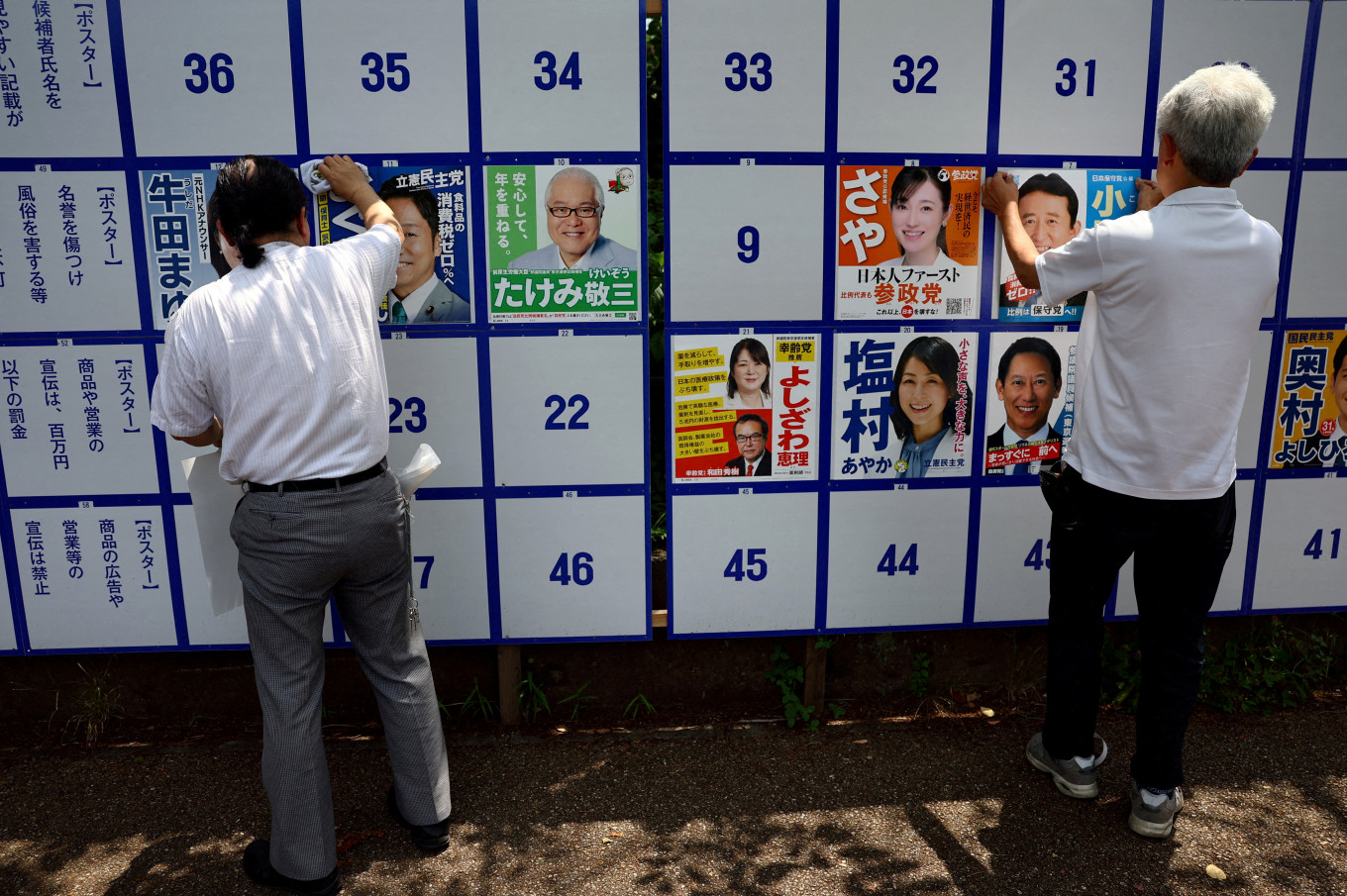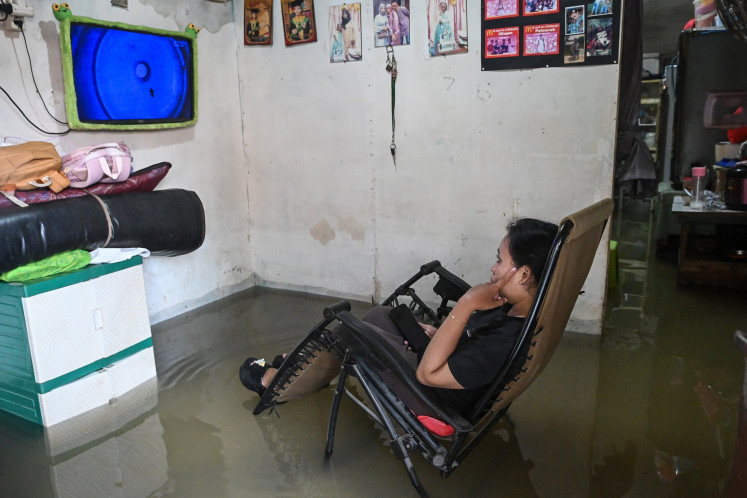Popular Reads
Top Results
Can't find what you're looking for?
View all search resultsPopular Reads
Top Results
Can't find what you're looking for?
View all search resultsPrabowo's East Asia outlook
President Prabowo needs to abandon his take-it-for-granted stance on East Asia, which represents Indonesia's top trading partners and investment sources.
Change text size
Gift Premium Articles
to Anyone
T
he "America First" and "Make America Great Again" slogans of United States President Donald Trump have sparked a ripple effect across major economic powers, evident in the surprising rise of Japan's little-known Sanseito Party in Sunday's Upper House elections. Indonesia must anticipate and adapt to these evolving dynamics in countries like Japan.
Many world leaders, in response to Trump's arbitrary trade war, have mimicked his aggressive actions against smaller nations, actions that will have devastating long-term impacts on their countries, regardless of Trump's political future.
All strategies adopted are likely to serve short- and medium-term interests. Crucially, as long as President Trump remains in power, nations are compelled to avoid open clashes and sometimes even cooperate with him, despite a clear recognition that US power has been eroding in recent years.
Many global leaders are now hastily embracing the Indonesian phrase "cari selamat sendiri" (finding one's own safety) as a quick solution to the challenges posed by Trump. Indonesia's own approach remains to be seen, but a reliance on multilateralism is no longer sustainable. We must also compete with the other ASEAN member states to safeguard our economic strength.
This serves as a gentle reminder to President Prabowo Subianto that he needs to abandon his take-it-for-granted stance on East Asia, which represents Indonesia's top trading partners and investment sources. The President's foreign policy has tended to be disproportionately focused on the West.
Indonesia now has little choice but to be more pragmatic while still striving to adhere to substantive principles. It is improbable that the President will be able to replicate his past success in persuading President Trump to lower Indonesia's import tariff from 32 percent to 19 percent.
Similarly, it is implausible that he could repeat his tactic to "force" the European Union to complete the Comprehensive Economic Partnership Agreement (CEPA) with Indonesia.
Consider Japan's situation: the "Japanese first" Sanseito Party, a relatively obscure political organization, dramatically impacted the ruling Liberal Democratic Party (LDP) in Sunday's Upper House election, securing 15 seats—a significant increase from just two in the previous election. This outcome is a direct reflection of Trump's agenda, including advocating stricter immigration rules and limits, alongside a "Make Japan Great Again" sentiment.
Although party chairman Kamiya Sohiya did not explicitly state it, he signaled his disapproval of Muslim migrants, which includes Indonesians. Compounding this, reports of criminal acts by Indonesians in Japan have increased in recent years, despite 12,720 Indonesian blue-collar workers being legally employed there last year.
Indonesia must be prepared to face a transformed Japan following the LDP's electoral setback. Prime Minister Shigero Ishiba has become a lame-duck leader, and his real fall lingers ahead. Regardless of Ishiba’s successor, Japan will likely adopt a harder posture toward other countries.
South Korea is also grappling with pressing domestic issues. Both Japan and South Korea are currently prioritizing their national interests in the short term, temporarily sidelining multilateral approaches. Therefore, Indonesia must adjust its strategy to align with the new directions of these two nations. Under new President Lee Jae-myung, South Korea is expected to shift from his predecessor Yoon Suk-yeol's Indo-Pacific Strategy, which included ASEAN. The palpable threat of US sanctions has plunged South Korea's export-oriented economy into crisis. It is a long-standing tradition for Korean presidents to enact a complete 180-degree shift in foreign policy upon assuming power.
Relations with Indonesia are likely to change as well, hopefully not for the worse. Upon arrival in Tokyo, Indonesia's designated ambassador to Japan, Kartini Sjahrir, is expected to act swiftly, as is Cecep Herawan, President Prabowo’s choice for ambassador to South Korea. The same urgency applies to Indonesian diplomats in Beijing.
We await President Prabowo to persuade East Asian countries to maintain stable economic relations with Indonesia to ensure their mutual benefit.











